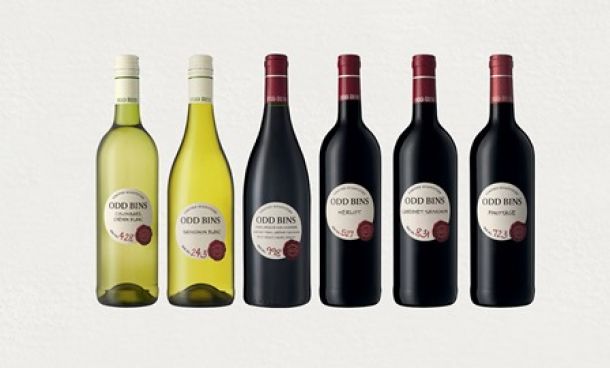Mountain flavours add a special twist to South African craft gin craze
Piling in for after-work drinks, a couple of dozen people pore over the menu at Mother’s Ruin, a speciality gin bar in Cape Town, where homegrown varieties are making a mark on the global scene.
The menu is a daunting tome of 144 gins from around the world, more than 20 of them South African and steeped in the flavours of the country’s coastal mountains.
"Those are very popular — all the foreigners who come here want to see what gins SA has to offer," said part owner Will Pretorius, whose favourite is A Mari, a variety from Cape Town distilled with seawater.
"Gin around the world is starting to have a moment and SA has jumped on the bandwagon," said gin maker Lucy Beard.
In 2015, her gin distillery, Hope on Hopkins, was the first to be licensed in Cape Town, just as the drink began to make a stir. Small gin distilleries soon began popping up in and around Cape Town and quite a few on wine farms, too, she said.
Formerly lawyers based in London, Beard and partner Leigh Lisk, who are both South African, turned their hand to gin after taking a year off to travel around Europe. "There were little craft distilleries everywhere," said Beard.
"It was basically a passing comment: ‘Do you think we could make gin?’ We downloaded a book on distilling to our Kindles and sat in a campsite in Spain reading it." It’s a simple enough process: spirits are distilled with what gin makers call botanicals to add flavour. The only rule — one of those flavours must be juniper.
What then distinguishes one gin from the next is everything else the distiller chooses to add to the mix.
In SA, that has predominantly been the fynbos flowers and herbs of the mountains around Cape Town such as sweet kapokbos, strong and fresh buchu, dry rooibos, rose geranium, wild olives, honeybush — a mountainside riot of choice.
"There are so many flavours to experiment with," said Simon von Witt of Woodstock Gin, a hole-in-the-wall affair on a busy Cape Town road, with a coffee shop upfront and a distillery round the back that produces about 1,000 bottles a month.
The shop is a beehive of activity to meet an order due for export to Belgium the next day.
"Fynbos has thousands of varieties, so you’re looking at a massive amount you can work with," said Von Witt.
His ingredient of choice is rooibos, a plant famous for the tea brewed from its leaves and the predominant ingredient of Woodstock Gin’s bestselling variety, aptly named High Tea.
"The rooibos is quite dry and the honeybush contrasts that — it’s slightly sweet and it just brings out amazing flavours," he said.
Gin is not a typical drink in SA, where beer, wine and brandy dominate. About 78% of all alcohol consumed here in 2015 was beer, according to the South African Wine Industry Information & Systems body.
Gin accounted for just 0.1%, only ahead of South Africa’s cane spirit distilled from fermented molasses.
"I like that it’s easy to drink — sometimes too easy!" said Amy Bennet, visiting Cape Town from Durban, sipping fynbos-tinged Inverroche. She began drinking gin while living in London as an alternative to the beers and ales on offer, she said.
Mother’s Ruin attracts a large and varied clientele paying about R32 for a shot of top-quality local gin.
"From older people, to tourists, to young people," said Pretorius, "everybody’s curious about gin... people want to taste it, experience it, see what the possibilities are with it." But as gin enjoys its moment, the oversaturated market in South African craft beers offers a warning.
"I don’t want to be in a bubble," said Von Witt.
The trick would be to make a gin that appeals "to everyone, right across the board, from millennials to the older generation".
"We’re not there yet," he said.
But Beard is hopeful. "The fervour around it will die out eventually, but there will always be those people who love to reach for a good, craft gin," she said.
AFP
News Category
- International retailers
- On the move
- Awards and achievements
- Legislation
- Wine and liquor
- Africa
- Going green
- Supplier news
- Research tools
- Retailer trading results
- Supply chain
- Innovation and technology
- Economic factors
- Crime and security
- Store Openings
- Marketing and Promotions
- Social Responsibility
- Brand Press Office
Related Articles

Makro secures exclusive rights to SA’s most sou...

Checkers adds 41 new wines to Odd Bins range

With petrol at almost R20 a litre, food prices ...

Petrol price shocker for South Africa


